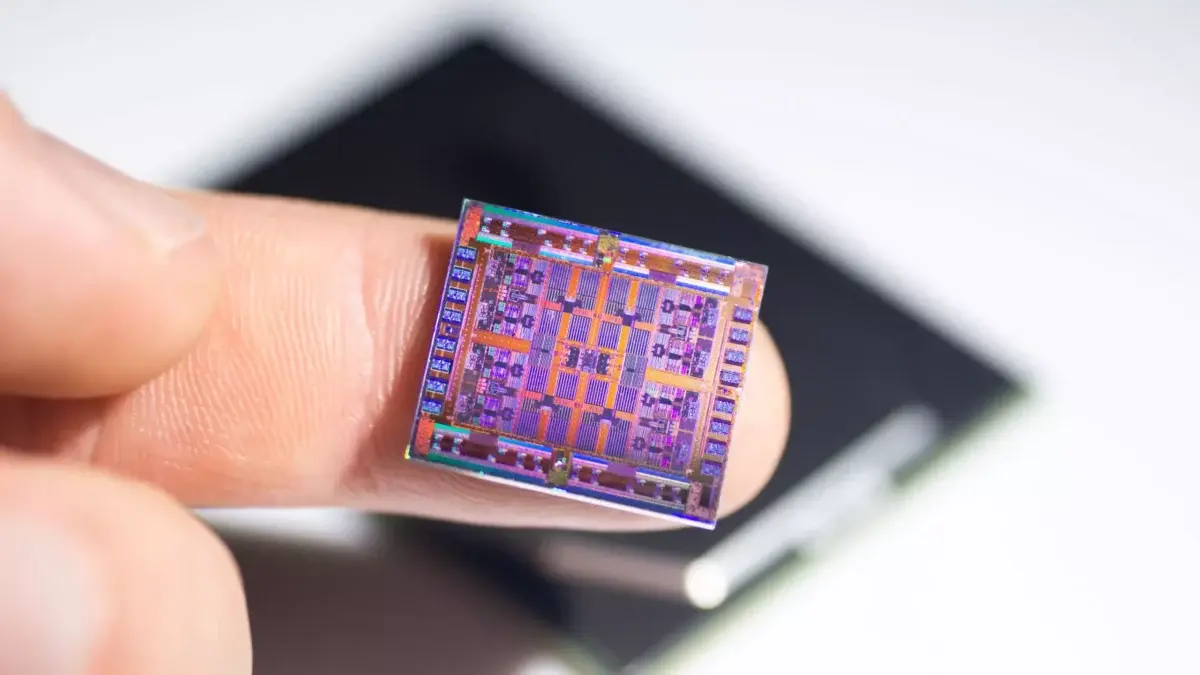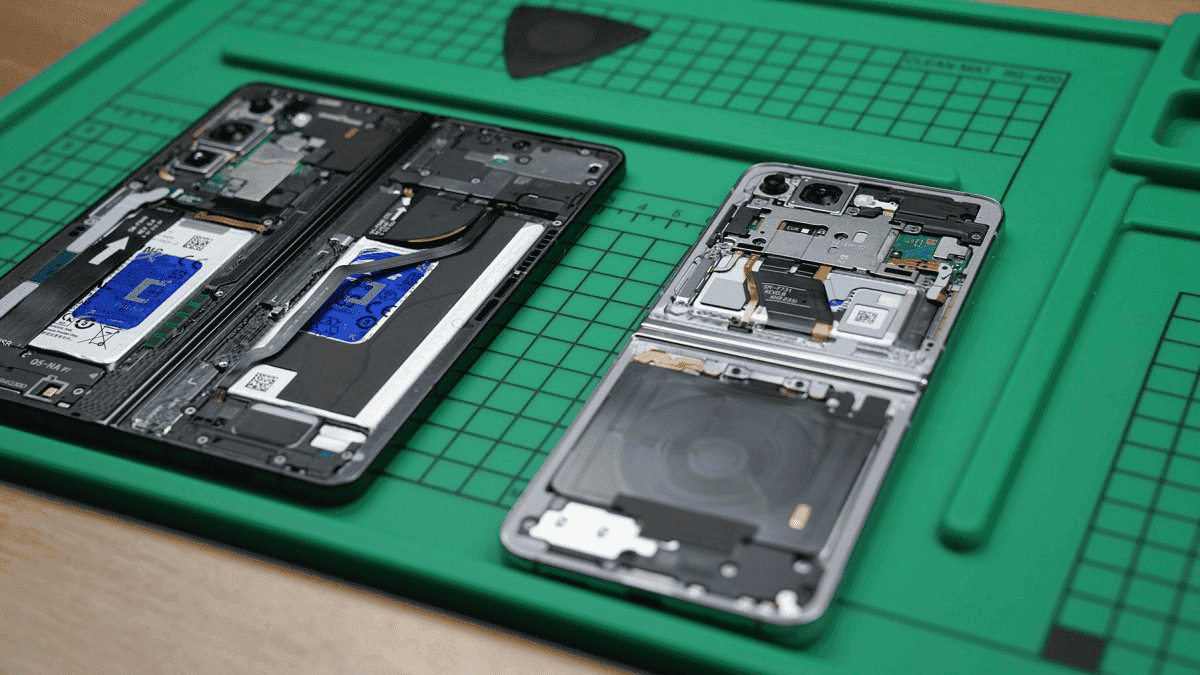
Intel, Samsung and TSMC Battle for 2nm Chip Supremacy
The main semiconductor corporations are engaged in a aggressive race to develop cutting-edge “2 nanometer” processor chips, heralding a brand new period for smartphones, information facilities, and synthetic intelligence purposes. Many regards Taiwan Semiconductor Manufacturing Firm (TSMC) because the frontrunner to take care of its dominance within the international semiconductor manufacturing sector. Nonetheless, contenders similar to Samsung Electronics and Intel are strategically positioning themselves to slim the hole and play pivotal roles in shaping the trade’s future.
Over time, semiconductor producers have relentlessly pursued the purpose of making more and more compact merchandise. The rationale behind this drive lies in the truth that smaller transistors on a chip translate to decrease vitality consumption and better processing velocity. The trade has adopted terminologies like “2 nanometer” (2nm) and “Three nanometer” to indicate every new chip technology. This signifies developments in chip expertise somewhat than the precise bodily dimension of semiconductors.
The corporate that establishes technological management within the subsequent technology of superior semiconductors stands to dominate an trade that witnessed over $500 billion in international chip gross sales final 12 months. Projections point out an extra surge in demand, significantly for information middle chips that energy generative AI providers.
TSMC Goals to Leap Forward of Samsung and Intel within the 2nm Chip Race
TSMC, a serious participant in international processor manufacturing, has already shared the take a look at outcomes of its “N2” (2 nanometer) prototypes with key prospects. They embody trade giants like Apple and Nvidia. Concurrently, Samsung is reportedly providing discounted variations of its 2 nanometer prototypes in a bid to draw important prospects. The South Korean tech large has its sight on Nvidia on this regard. Whereas Samsung views the 2-nanometer expertise as a game-changer, doubts persist throughout the trade relating to its capability to execute the migration extra successfully than TSMC.
Intel, a former market chief, has made bold claims about producing its subsequent technology of chips by the top of the subsequent 12 months. This strategic transfer might probably place Intel forward of its Asian rivals. Nonetheless, uncertainties loom giant regarding the precise efficiency of Intel’s merchandise. TSMC, then again, has introduced plans for mass manufacturing of N2 chips to start in 2025. The corporate sometimes follows a sample the place the cell model is launched first, with Apple serving as its major buyer. Subsequent releases embody variations tailor-made for PCs and high-performance computing chips designed for heavier energy hundreds.
Apple’s newest flagship smartphones, the iPhone 15 Professional and Professional Max, marked a major milestone. These smartphones got here as the primary extensively obtainable client gadgets to leverage TSMC’s superior 3-nanometer chip expertise upon their launch in September this 12 months.
Regardless of the notable developments in semiconductor expertise, the challenges related to transitioning from one technology of chip expertise to the subsequent turn into more and more complicated as chips get smaller. This raises the chance of potential setbacks that would impression an organization’s market standing. TSMC, nonetheless, has expressed confidence, assuring that its N2 expertise improvement is progressing properly and is on observe for quantity manufacturing in 2025. The corporate goals for its expertise to be probably the most superior in each density and vitality effectivity throughout the trade.
Samsung Goals to Slim the Hole in Phrases of Market Share with TSMC with 2nm Chip
Samsung, which instructions a 25% share of the worldwide superior foundry market in comparison with TSMC’s 66%, perceives a possibility to shut the hole. The conglomerate initiated mass manufacturing of its Three nanometer chips final 12 months. The chip featured a brand new transistor structure often known as “Gate-All-Round” (GAA). US chip designer Qualcomm is reportedly planning to include Samsung’s “SF2” chip in its next-generation high-end smartphone processors. This marks a strategic shift after Qualcomm transferred most of its flagship cell chips from Samsung’s 4-nanometer course of to TSMC’s equal.
Nonetheless, trade analysts warning that whereas Samsung was the primary to convey its 3-nanometer chips to market. It has grappled with challenges associated to the “yield charge.” The yield charge measures the proportion of chips produced that meet the standard requirements for cargo to prospects. In response to sources, the yield charge for Samsung’s easiest 3-nanometer chip stands at simply 60%, falling beneath buyer expectations. Considerations are raised in regards to the potential decline in yield charges for extra complicated chips, equal to Apple’s A17 Professional or Nvidia’s graphic processing items.
Samsung’s Challenges within the 2nm Chip Trade
“Dylan Patel, chief analyst at analysis agency SemiAnalysis, expressed skepticism about Samsung’s bold strides in semiconductor expertise. Patel remarked, ‘Samsung tries to do these quantum leaps. They’ll declare all they need, however they nonetheless haven’t launched a correct 3-nanometer chip.’ This skepticism underscores the challenges Samsung faces in delivering on its guarantees and reaching technological milestones. As opponents vie for supremacy within the semiconductor trade, the effectiveness of every firm’s execution in transitioning to superior chip applied sciences stays a important consider figuring out market management.”
Samsung faces challenges as a result of its smartphone and chip design items compete for patrons desirous about logic chips. Professor Lee Jong-hwan from Sangmyung College in Seoul notes considerations about potential leaks on account of Samsung’s construction. However, former market chief Intel is showcasing its upcoming “18A” node at tech conferences. It’s providing free take a look at manufacturing to chip design companies and planning manufacturing in late 2024. TSMC’s CEO, CC Wei, stays assured, stating their 3-nanometer variant is similar to Intel’s 18A in energy, efficiency, and density.
Samsung and Intel goal to scale back reliance on TSMC for business causes or considerations a couple of potential Chinese language menace. AMD’s CEO talked about contemplating different manufacturing choices for larger flexibility. Leslie Wu, CEO of RHCC consulting agency, highlights main prospects in search of 2-nanometer expertise desire spreading chip manufacturing throughout varied foundries. That is as a result of dangers of relying solely on TSMC. Mark Li, an Asia semiconductor analyst at Bernstein, questions the importance of geopolitical elements in comparison with TSMC’s benefits in price, effectivity, and belief. The evolving semiconductor panorama continues to witness intense competitors, with every participant vying for technological supremacy and market dominance.


